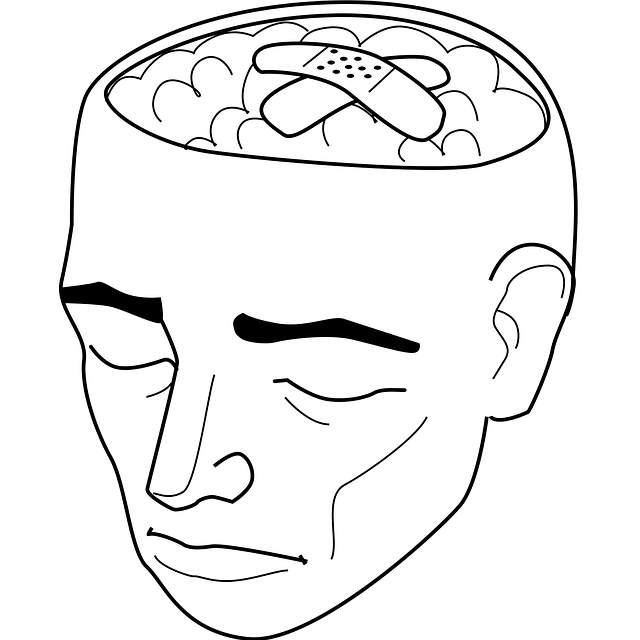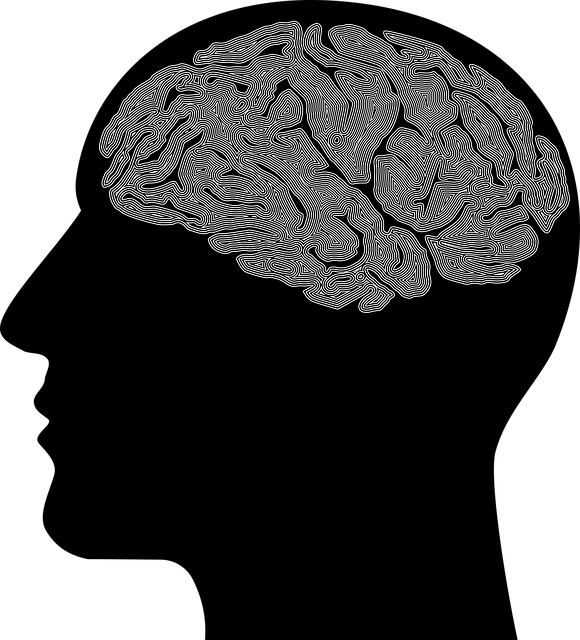The stigma around mental illness hinders recovery, especially for vulnerable populations like those in Englewood. Englewood First Responders Therapy (EFRT) is a community-driven initiative that breaks down barriers by bringing therapy directly to residents. Through interactive sessions, journaling, and stress management guidance, EFRT equips participants with emotional well-being tools while fostering open dialogue in a non-judgmental environment. Healthcare settings like EFRT integrate education, awareness, and evidence-based practices to reduce stigma, empower patients, dispel myths, and create supportive environments that improve patient outcomes. By combining specialized training, risk assessment skills, and mindfulness meditation, EFRT enhances emotional resilience, prevents professional burnout, and fosters a culture of understanding and care for mental health concerns. Success is measured through early intervention, reduced symptom severity, and improved individual and community outcomes, employing robust metrics including public awareness campaigns, culturally sensitive practices, and risk assessments.
Mental illness stigma remains a significant barrier to individuals seeking help. This article explores comprehensive strategies for stigma reduction, from understanding its profound impact on mental health seekers to innovative initiatives like Englewood First Responders Therapy—a community-based approach that fosters trust and accessibility. We delve into effective strategies within healthcare settings, professional education, and measurement of success, providing insights crucial for creating a more supportive environment.
- Understanding Stigma: Its Impact on Mental Health Seekers
- Englewood First Responders Therapy: A Community-Based Approach
- Strategies for Effective Stigma Reduction in Healthcare Settings
- Educating and Training Professionals to Combat Stigma
- Measuring Success: Evaluating the Effectiveness of Stigma Reduction Efforts
Understanding Stigma: Its Impact on Mental Health Seekers

Stigma surrounding mental illness can have profound effects on individuals seeking help, often hindering their path to recovery. It creates a culture where people facing mental health challenges feel ashamed, leading many to conceal their struggles and avoid essential support systems. This phenomenon is particularly detrimental for vulnerable populations like Englewood First Responders Therapy clients, who might experience heightened anxiety and trauma-related symptoms due to their high-pressure roles.
Understanding stigma’s impact is crucial in developing empathy-building strategies. By fostering an environment of acceptance and open dialogue, healthcare providers can encourage individuals to openly discuss mental health issues. This shift can significantly aid in preventing burnout among professionals, as it promotes better coping mechanisms and supports those at risk, ultimately leading to improved anxiety relief and overall well-being.
Englewood First Responders Therapy: A Community-Based Approach

Englewood First Responders Therapy is a pioneering community-based initiative that offers a unique approach to mental illness stigma reduction. This program brings therapy directly to individuals in their homes or community settings, breaking down barriers and fostering trust between residents and mental health professionals. By providing accessible and tailored support, it aims to improve the well-being of those affected by trauma and mental health challenges.
This model of care encourages open dialogue about mental wellness, promoting positive thinking and self-care practices. Through interactive sessions, engaging activities like journaling exercises, and guidance on stress management, participants gain valuable tools to navigate their emotional well-being. The community-centric nature of Englewood First Responders Therapy ensures that resources are tailored to the specific needs of the neighborhood, fostering a supportive environment where individuals feel empowered to seek help without fear of judgment.
Strategies for Effective Stigma Reduction in Healthcare Settings

Reducing stigma surrounding mental illness is a multifaceted approach, and healthcare settings play a pivotal role in this transformation. One effective strategy is to integrate education and awareness programs that dispel myths and provide accurate information about various mental health conditions. These initiatives can involve training staff on the latest research and treatment methods, encouraging open dialogue with patients, and fostering an environment of empathy and understanding.
Englewood First Responders Therapy, for instance, has been instrumental in promoting stigma reduction through its Trauma Support Services. By implementing Mind Over Matter Principles, they empower individuals to manage their emotional regulation, challenging societal perceptions and fostering a supportive atmosphere. Such programs not only improve patient outcomes but also contribute to creating a more inclusive healthcare ecosystem where mental health support is accessible without fear of judgment.
Educating and Training Professionals to Combat Stigma

Englewood First Responders Therapy plays a pivotal role in stigma reduction by equipping professionals with the tools to navigate mental health crises empathetically and effectively. Through specialized training, first responders learn to recognize signs of mental illness beyond visible symptoms, understanding that hidden struggles are common. This shifts the narrative from stigmatization to compassion, allowing them to de-escalate situations and connect individuals with appropriate support.
The process involves intensive training in risk assessment for mental health professionals, empowering them to identify distress signals accurately. Additionally, mindfulness meditation practices incorporated into their routines enhance emotional resilience, enabling better self-care and reduced burnout. By combining these techniques with coping skills development, professionals become more adept at supporting others while maintaining their own well-being, fostering a culture of understanding and care for mental health concerns.
Measuring Success: Evaluating the Effectiveness of Stigma Reduction Efforts

Measuring success in stigma reduction efforts is a multifaceted endeavor that goes beyond simple surveys and self-reports. Initiatives like Englewood First Responders Therapy exemplify effective strategies by integrating mental health services into emergency response systems, thereby fostering early interventions and reducing the severity of symptoms. This not only improves individual outcomes but also impacts community levels, decreasing the public’s fear and misunderstanding of mental illness.
To ensure longevity and adaptability, stigma reduction programs must be evaluated using robust metrics. Incorporating aspects like public awareness campaigns development that focus on factual information and personal stories can foster a more compassionate society. Additionally, emphasizing cultural sensitivity in mental healthcare practice allows for tailored approaches that resonate with diverse communities. Risk assessments for mental health professionals play a crucial role in identifying potential barriers and implementing necessary adjustments to maximize the impact of these efforts.
Mental illness stigma reduction is a multifaceted approach that, when implemented effectively, can dramatically improve access to care. From community-based initiatives like Englewood First Responders Therapy, which offers support within familiar environments, to professional training and education, each strategy plays a vital role in fostering understanding and empathy. Measuring success through evaluation ensures these efforts are tailored and optimized for maximum impact. By continuing to innovate and collaborate, we can create a more inclusive and supportive society for those seeking mental health services.














